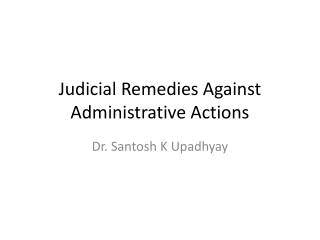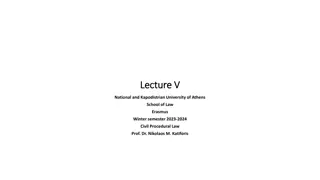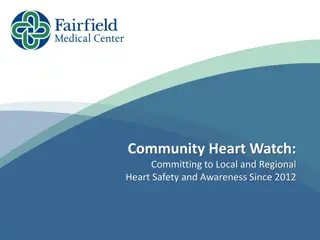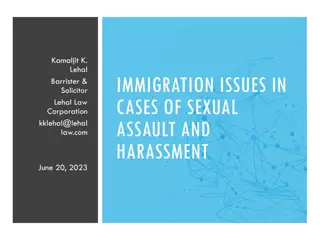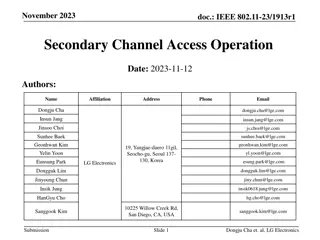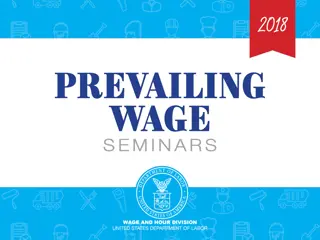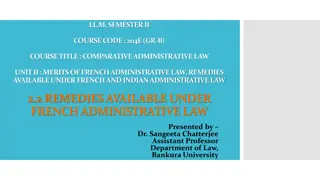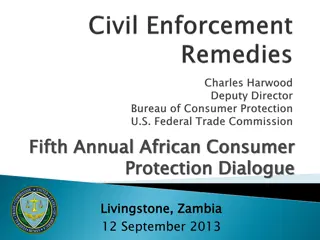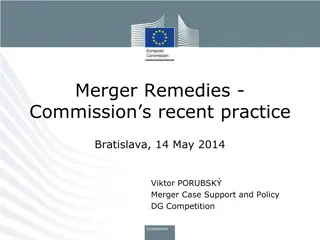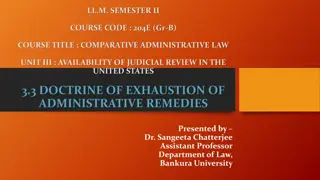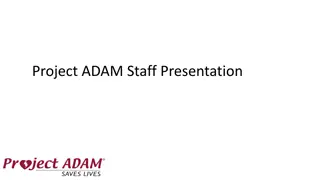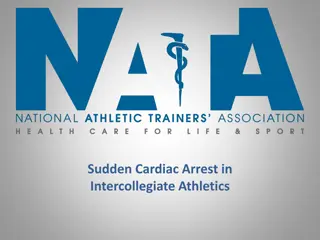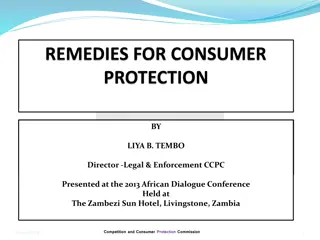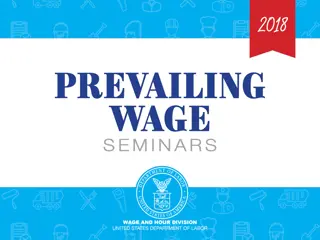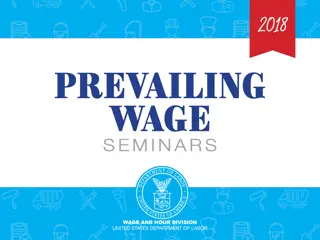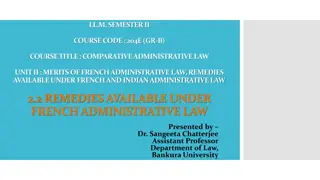
Understanding Withholding of Contract Funds in SCA and CWHSSA
Learn about the importance and process of withholding contract funds under the Service Contract Act (SCA) and Contract Work Hours and Safety Standards Act (CWHSSA), and how it protects workers' rights to receive proper wages and benefits. Discover when and why funds can be withheld, the parties involved, and the procedures followed in such cases. Explore the regulations, obligations, and implications of withholding contract funds in wage disputes.
Download Presentation

Please find below an Image/Link to download the presentation.
The content on the website is provided AS IS for your information and personal use only. It may not be sold, licensed, or shared on other websites without obtaining consent from the author. If you encounter any issues during the download, it is possible that the publisher has removed the file from their server.
You are allowed to download the files provided on this website for personal or commercial use, subject to the condition that they are used lawfully. All files are the property of their respective owners.
The content on the website is provided AS IS for your information and personal use only. It may not be sold, licensed, or shared on other websites without obtaining consent from the author.
E N D
Presentation Transcript
Withholding of Contract Funds (29 C.F.R. 4.6(i) & 4.187) SCA and CWHSSA provide for withholding of contract funds to satisfy alleged wage underpayments pending resolution of a wage dispute. 41 U.S.C. 352(a); 40 U.S.C. 3702(d). Withholding of contract funds is an effective enforcement tool in SCA and CWHSSA cases. It protects the rights of covered workers to wages due them.
Withholding of Contract Funds (29 C.F.R. 4.6(i) & 4.187) Both SCA and CWHSSA contract clauses provide for withholding to ensure the availability of contract funds needed for the payment of: unpaid back wages found to be due to covered workers; and CWHSSA liquidated damages. DOL regulations address withholding in the SCA and CWHSSA contract clauses at 29 C.F.R. 4.6(i), 4.187, and 5.5(b)(3).
Withholding of Contract Funds (29 C.F.R. 4.6(i) & 4.187) Withholding may be undertaken at the request of DOL or by the contracting agency under its own initiative, if it is determined to be necessary to secure the funds to pay wages or fringe benefits due to underpaid employees. It is mandatory for a contracting officer to adhere to a request from the Department of Labor to withhold funds where such funds are available.
Withholding of Contract Funds (29 C.F.R. 4.6(i) & 4.187) Withholding may take place due to underpayments by the prime contractor themselves, or for underpayments by any of their sub-contractors Funds may be withheld from any contract between the same prime contractor and the federal government, not only the contract(s) upon which the underpayments occurred.
Withholding of Contract Funds (29 C.F.R. 4.6(i) & 4.187) The contractor and prime contractor (if separate) will be notified in writing of the withholding and will be provided with time to provide additional information. Funds may be withheld prior to the institution of administrative proceedings by the Secretary. However, those funds will not be disbursed until the contractor and/or prime contractor has had an opportunity to request a hearing before the Administrative Law Judge.
Withholding of funds (29 C.F.R. 4.6(i) & 4.187) Wage claims have priority over other claims, including: IRS tax levies Agency re-procurement costs Any claim by the trustee in bankruptcy Any assignee of the contractor The government may also institute court action against the contractor, or its surety, to recover wage and fringe benefit underpayments if the accrued payments withheld under the terms of the contract are insufficient.
Contract Cancellation 41 U.S.C. 352(c) & 29 CFR 4.6(i) When a violation of any labor stipulation is found, the contracting agency may cancel the contract upon written notice to the contractor. The contracting agency may then enter into other contracts or arrangements as needed to complete the complete the original contract and charge all additional costs to the original contractor.
Debarment (41 U.S.C. 354; 29 C.F.R. 4.188) Any person or business entity found to have violated the SCA may be ineligible to receive further contracts for three years unless there is a finding of unusual circumstances. GSA's System for Award Management (SAM) reflects debarred firms by name/address.
Debarment (41 U.S.C. 354; 29 C.F.R. 4.188) Contracts also may not be awarded to any firm, corporation, partnership, or association in which debarred persons or firms have a substantial interest Substantial interest is determined on a case by case basis, but generally includes: Any person or firm with more than 5% ownership or control Officers, directors, or other shared management The debarred person participated in contract negotiations, signed contract(s), or can establish, control, or manage the contract performance and/or the labor policies for a firm
Debarment (41 U.S.C. 354; 29 C.F.R. 4.188) The burden is on the contractor to demonstrate unusual circumstances. A good compliance history, cooperation in the investigation, repayment of moneys due, and sufficient assurances of future compliance are prerequisites, but are not the only factors that must be considered. Debarment relief is not appropriate where aggravated circumstances are present, such as willful, deliberate, or aggravated violations, or culpable neglect or disregard of the requirements of the labor provisions
Hearing Process (29 C.F.R. Part 6) A complaint is filed by WHD with DOL s Administrative Law Judge (ALJ) when a contractor: Fails to pay back wages; or Refuses to agree to future compliance; or Debarment is recommended.
Hearing Process (contd.) The contractor served with a copy of the complaint. The Office of the Chief ALJ is responsible for scheduling administrative hearings. ALJ decisions may be appealed (within 40 days) to the Administrative Review Board, which makes final agency rulings.
Administrative Review Board (29C.F.R. Part 8) Members appointed by the Secretary of Labor. Hears appeals of ALJ decisions. Acts on petitions to review final rulings of WHD Administrator: 60 days on coverage & interpretations; 20 days on WD matters. Proceeding may be an oral hearing or by review of the record in closed session.
Disclaimer This presentation is intended as general information only and does not carry the force of legal opinion. The Department of Labor is providing this information as a public service. This information and related materials are presented to give the public access to information on Department of Labor programs. You should be aware that, while we try to keep the information timely and accurate, there will often be a delay between official publications of the materials and the modification of these pages. Therefore, we make no express or implied guarantees. The Federal Register and the Code of Federal Regulations remain the official source for regulatory information published by the Department of Labor. We will make every effort to keep this information current and to correct errors brought to our attention.

